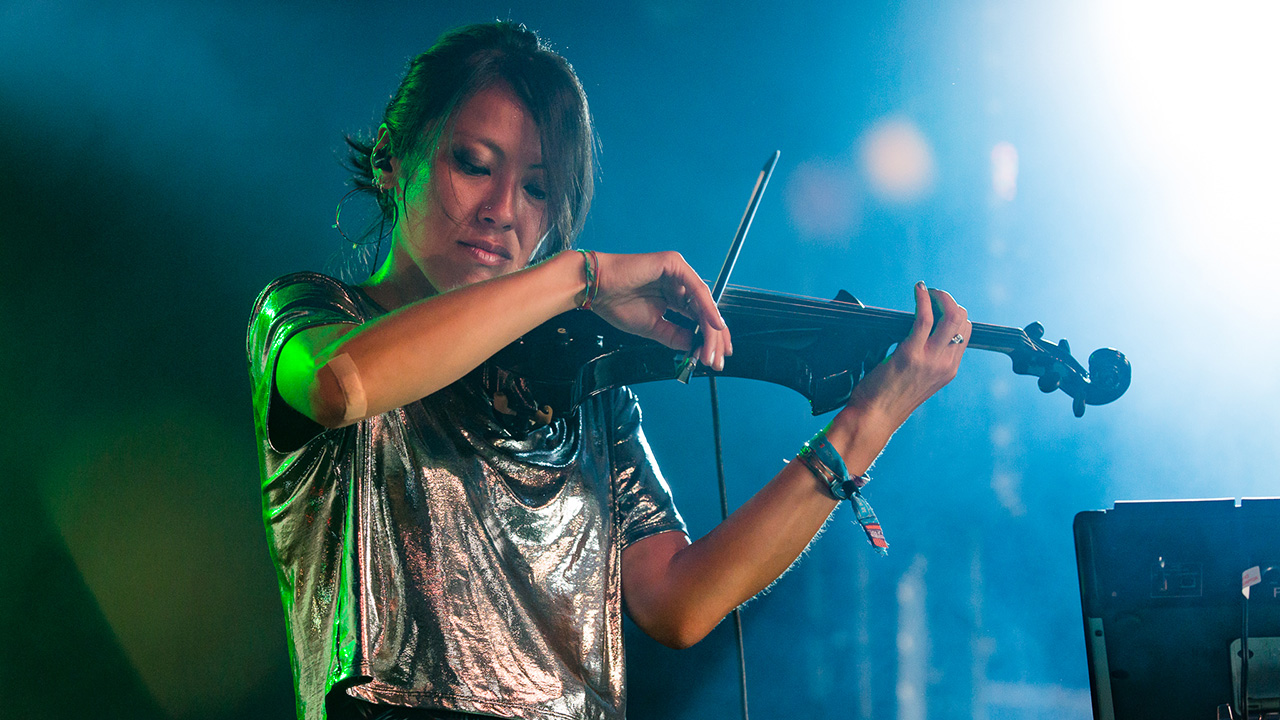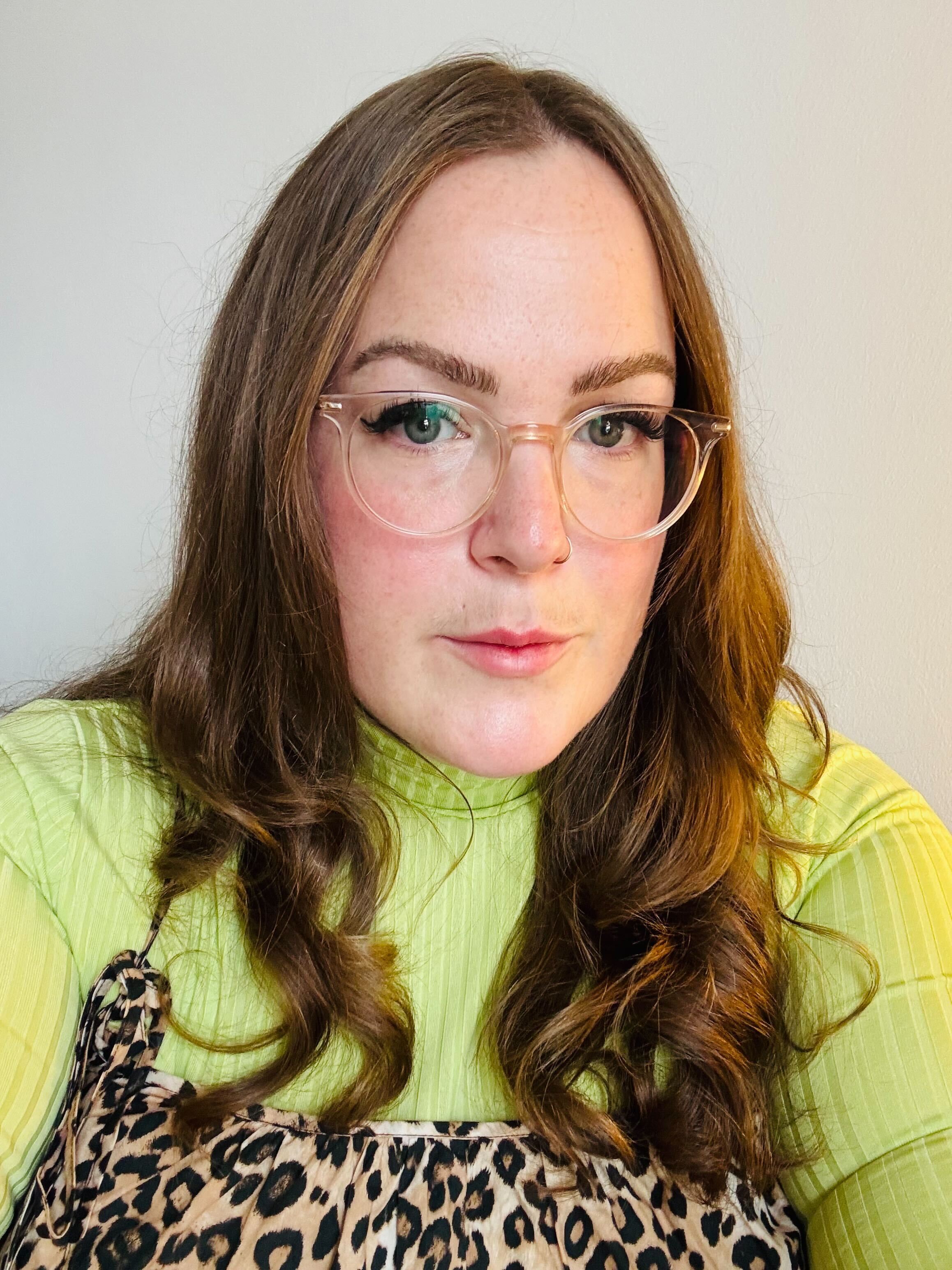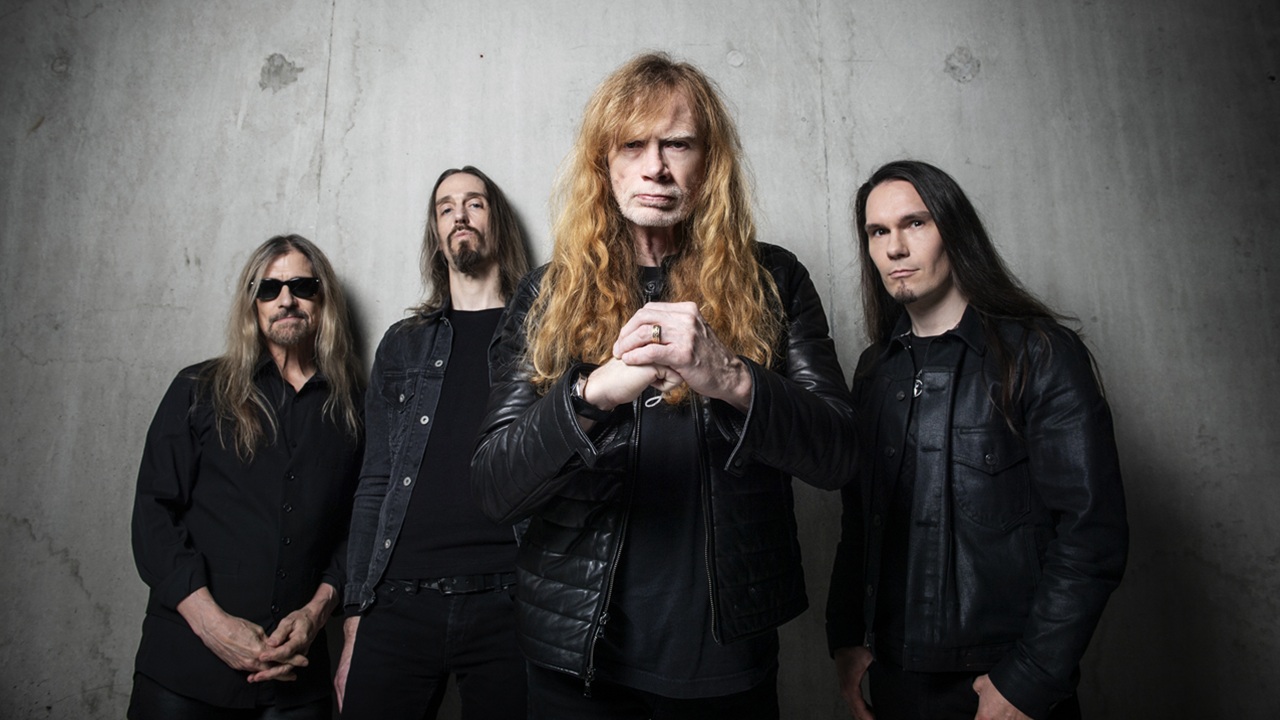How to make it as a session musician
Session musician Angela Chan shares her tricks of the trade for all those hoping to break into the industry

Select the newsletters you’d like to receive. Then, add your email to sign up.
You are now subscribed
Your newsletter sign-up was successful
Want to add more newsletters?

Every Friday
Louder
Louder’s weekly newsletter is jam-packed with the team’s personal highlights from the last seven days, including features, breaking news, reviews and tons of juicy exclusives from the world of alternative music.

Every Friday
Classic Rock
The Classic Rock newsletter is an essential read for the discerning rock fan. Every week we bring you the news, reviews and the very best features and interviews from our extensive archive. Written by rock fans for rock fans.

Every Friday
Metal Hammer
For the last four decades Metal Hammer has been the world’s greatest metal magazine. Created by metalheads for metalheads, ‘Hammer takes you behind the scenes, closer to the action, and nearer to the bands that you love the most.

Every Friday
Prog
The Prog newsletter brings you the very best of Prog Magazine and our website, every Friday. We'll deliver you the very latest news from the Prog universe, informative features and archive material from Prog’s impressive vault.
When it comes to resumes, it's fair to say Angela Chan's is particularly impressive. A seasoned session musician, she's worked with a number of industry giants over her time in the business, from touring as part of Placebo's live band to lending support to Brian Wilson's live shows. On top of this, she's also carved herself out a name as a musician in her own right, with innovative alternative musical projects Bella Union, Lanterns On The Lake and, most recently, Hello Cosmos.
We caught up with Chan to pick her mind about the competitive world of session playing, and to bring you the essential tips and tricks you need to succeed in the biz.

Be proactive
"Go out, meet people, get to know your local scene. Get involved with open mics, jam sessions and industry events. Get your name out to studios, venues, promoters etc. Follow relevant things online and search for opportunities. I joined a band through Gumtree, got hired for another band at a mutual friend’s birthday meal, and went on tour with another after meeting them in soundcheck. I’m not good at the hard sell but getting yourself out there is important. Just be friendly and social. You never know who you might meet. Some of these people will turn out to be your best friends in life."
Mad skillz
"So you can play. What sets you apart? Can you play an obscure instrument? Sing in multiple languages? Can you play by ear and read sheet music? Do you have a distinct style? Producers usually have a specific sound they want but are also excited by the obscure. Study lots of genres, work on your sounds and styles so you can be versatile but also consider a specialism. Don’t be afraid to say no to styles you’re not confident with. It could be more harmful to your reputation if you ‘wing it’ rather than be honest about your abilities. Keep adding to your skill set. The more you can do, the more job opportunities you will have."
Be a team player
"You might think the parts do not reflect the best of your abilities, but whilst having confidence in your playing is important, a bit of humility goes a long way. Keep things simple, listen to what’s going on around you. Don’t overplay. Concentrate on not fucking up. Always make time to acknowledge and thank everyone involved in a session regardless of their position. There’s a lot of competition out there and these people work with them every day. If you want to be remembered for future work, you could start by building a reputation for being likeable and capable."
Respect and diplomacy
"You might have better ideas on how to do things but don’t forget you’re there to help someone realise their creative vision; it’s their baby. Make sure your contribution is welcome before you offer it. Avoid creative criticism and comparisons. Try not to debate, even if your idea is actually better. It’s not your band. Take your creative ideas and make it work elsewhere. Studio etiquette is also important – don’t move things without asking, or pick up someone else’s instrument to play."
Be professional
"This might seem obvious, but you’ll be surprised. Be on time. Turn phones on to silent. Know who’s in charge of what. Don’t invite your mates down without checking. Be helpful and friendly. Be attentive. Never take a photo of the artist without asking. Bring snacks but don’t get crumbs in that expensive mic. Bring your game face. If you feel like shit, you’re going to play like shit."
The latest news, features and interviews direct to your inbox, from the global home of alternative music.
Get on a level
"Producers and MDs will want to work with people that get their ideas quickly, so get to know the lingo of the studio/stage environment – vocabulary, hand signals, etc. It’s not all universal though, hand signals can mean different things in different circles. For musical directions, be patient when trying to decode language like ‘fizzy’, ‘stabby’ ‘less rhythm’ etc. All those Italian terms you had to learn for your Grade 5 theory are now defunct. Be prepared to play a bunch of ideas and as despair sets in, you play your first idea again to shouts of ‘that’s the one!’ Take a deep breath and smile."
Keep your cool
"Sometimes things aren’t quite right. It could be technical – inadequate monitoring, poor lighting, lack of space. These things can be fixed. Calmly let someone know what’s wrong and you will find most people are very accommodating. Sometimes you'll experience the ridiculous, like flames bursting from every orifice of the stage whilst fire performers are all up in your space. That’s your call if you’re going to put yourself in those situations. Sometimes things go wrong; you break a string, a confetti cannon misfires straight into your back mid-performance, or you’re on stage with a circus troupe and a drum'n'bass legend appears next to you out of nowhere with a mic. Just keep calm and carry on. Stranger things have happened."
Love it
"So, there are my dos and don’ts in a nutshell for working in the session world. If it isn’t for you, explore other ways to get involved. Session work is just a part of what I do. I love the variety of switching between creator, realiser, academic, critic, consumer, admirer, hobbyist. Most importantly, don’t forget your friends. What’s better than making music with pals? This is where we shine – cups of tea, laughter, egos out the window, open space to try new ideas, elaborate experiments, share tips and bad jokes, make a record, don’t make a record. It doesn’t matter. It’s fun. And this is how you end up in loads of bands with mates and an obscene pedalboard."
Hello Cosmos’ new single, Dream Harder, is out now – you can check out the video below.
Briony is the Editor in Chief of Louder and is in charge of sorting out who and what you see covered on the site. She started working with Metal Hammer, Classic Rock and Prog magazines back in 2015 and has been writing about music and entertainment in many guises since 2009. Her favourite-ever interviewee is either Billy Corgan or Kim Deal. She is a big fan of cats, Husker Du and pizza.

